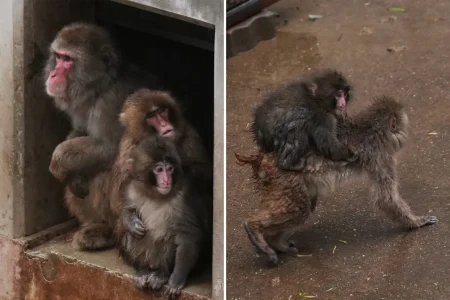This incident at a McDonald’s restaurant in Broadmeadow, Newcastle, Australia, has sparked significant public concern and disgust after video footage surfaced showing a disturbing infestation of cockroaches and maggots within the premises. The graphic images depict cockroaches crawling amidst French fries, on furniture, in a bin, and across the floor, while a separate scene reveals numerous maggots teeming in a dustpan. This visual evidence of unsanitary conditions has understandably prompted outrage and apprehension among customers. The revelation of these images has led some individuals to declare their intention to boycott the restaurant, expressing their revulsion and lost appetite.
The public response has been varied, with some individuals expressing shock and disgust, while others have attempted to normalize the incident, suggesting that such infestations are common and inevitable in fast-food establishments. Some have blamed the alleged employment of teenagers, attributing the hygiene lapse to their supposed lack of experience and diligence in maintaining cleanliness standards. However, this generalization is not only unfair to the many responsible young employees but also deflects from the core issue of inadequate hygiene management within the restaurant itself. The responsibility ultimately lies with the establishment to implement and enforce rigorous cleanliness protocols, regardless of the age demographic of its workforce.
McDonald’s has officially responded to the incident, expressing disappointment and acknowledging that the situation falls short of their established hygiene standards. The company asserts that they have taken immediate action, including a comprehensive professional pest inspection and the implementation of enhanced pest control measures at the Broadmeadow location. They have also pledged to closely monitor the restaurant to ensure that such incidents are not repeated and to restore customer confidence in their commitment to food safety and quality. This statement aims to reassure the public that the incident is being treated seriously and that steps are being taken to rectify the situation.
This is not an isolated incident for McDonald’s, as previous hygiene concerns have been raised in the past. One notable instance involved a Queensland employee drying a mop head directly under a fries warmer, a practice that understandably sparked significant public backlash. The fast-food giant labeled this as an “isolated incident,” a claim that appears increasingly dubious given the recurring nature of such occurrences. This pattern suggests a potential systemic issue within the organization’s hygiene practices, raising questions about the effectiveness of their training and oversight.
The public reaction to the mop incident was largely one of mockery and disgust, with many social media users making sarcastic comments about the potential source of McDonald’s fries’ “flavor.” While humorous on the surface, these comments underscore a deeper concern about the potential health risks associated with such unsanitary practices. The incident brought into sharp focus the importance of maintaining stringent hygiene standards in food preparation areas to prevent contamination and safeguard public health.
The recurring nature of these incidents raises broader questions about the efficacy of McDonald’s hygiene protocols and training programs across its franchises. While the company’s response to each incident typically involves assurances of corrective action and reinforced standards, the continued emergence of similar issues suggests a need for more comprehensive and systemic changes. A deeper investigation into the root causes of these hygiene lapses is necessary to prevent future occurrences and rebuild public trust. This could involve revisiting training procedures, implementing more rigorous inspection regimes, and fostering a culture of accountability at all levels within the organization. Furthermore, transparency in communicating these efforts to the public would be crucial in demonstrating a genuine commitment to improving hygiene practices.















